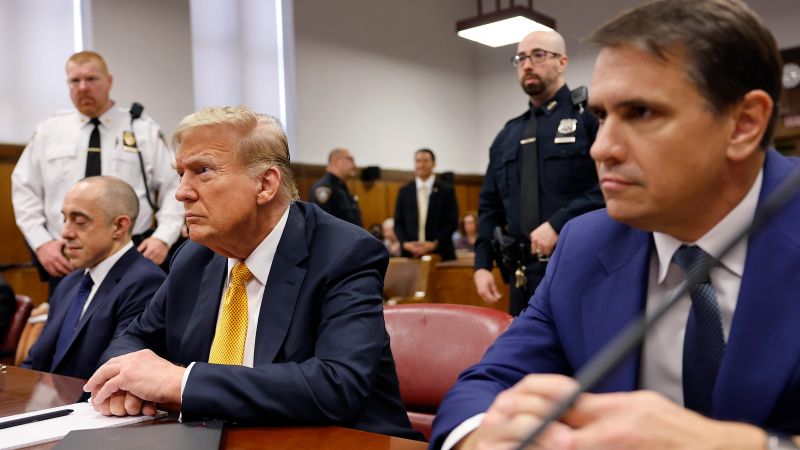Former President Donald Trump has hinted at the possibility of testifying in the hush money case, but has ultimately chosen not to take the stand. Legal analysts argue that this was a smart decision, as opening himself up to prosecutorial questioning could have been risky given his history of behavior that mirrors the accusations he faces. The case revolves around three main questions: whether Trump had an affair, falsified business records to conceal hush money payments, and violated campaign laws in order to protect his 2016 White House bid.
While Trump denies the affair, his past behavior and infidelity rumors have created a public image of him as a man with a wandering eye. Additionally, allegations from women like E. Jean Carroll and Karen McDougal further paint a picture of Trump engaging in inappropriate behavior. The accusation of Trump falsifying records is not new, as a recent ruling in New York required him to pay $355 million for submitting fraudulent paperwork about his property values. Furthermore, Trump is currently facing charges of trying to pressure election officials and inciting the Capitol riot.
Despite Judge Juan Merchan’s instructions for the jury to focus solely on the evidence presented in court, Trump’s long history of controversial actions and legal troubles may still influence their perceptions. The trial taking place in New York City, where public awareness of Trump’s legal issues is higher, only adds to the likelihood that jurors may be influenced by his public image. By choosing not to testify, Trump may have attempted to distance himself from his public persona, but the impact of his past actions and statements could still linger in the jury room during deliberations.
In the end, Trump’s decision not to testify may have been a strategic move, as it allowed him to avoid potentially damaging questioning. However, his past behavior and legal troubles have shaped how many Americans view him, potentially impacting the jury’s perception of the case. Despite efforts to keep the focus on the evidence presented in court, Trump’s controversial history and high-profile legal battles may still play a role in the jurors’ deliberations. As the trial comes to a close, the influence of Trump’s public image on the jury’s decision remains a significant factor to consider.


